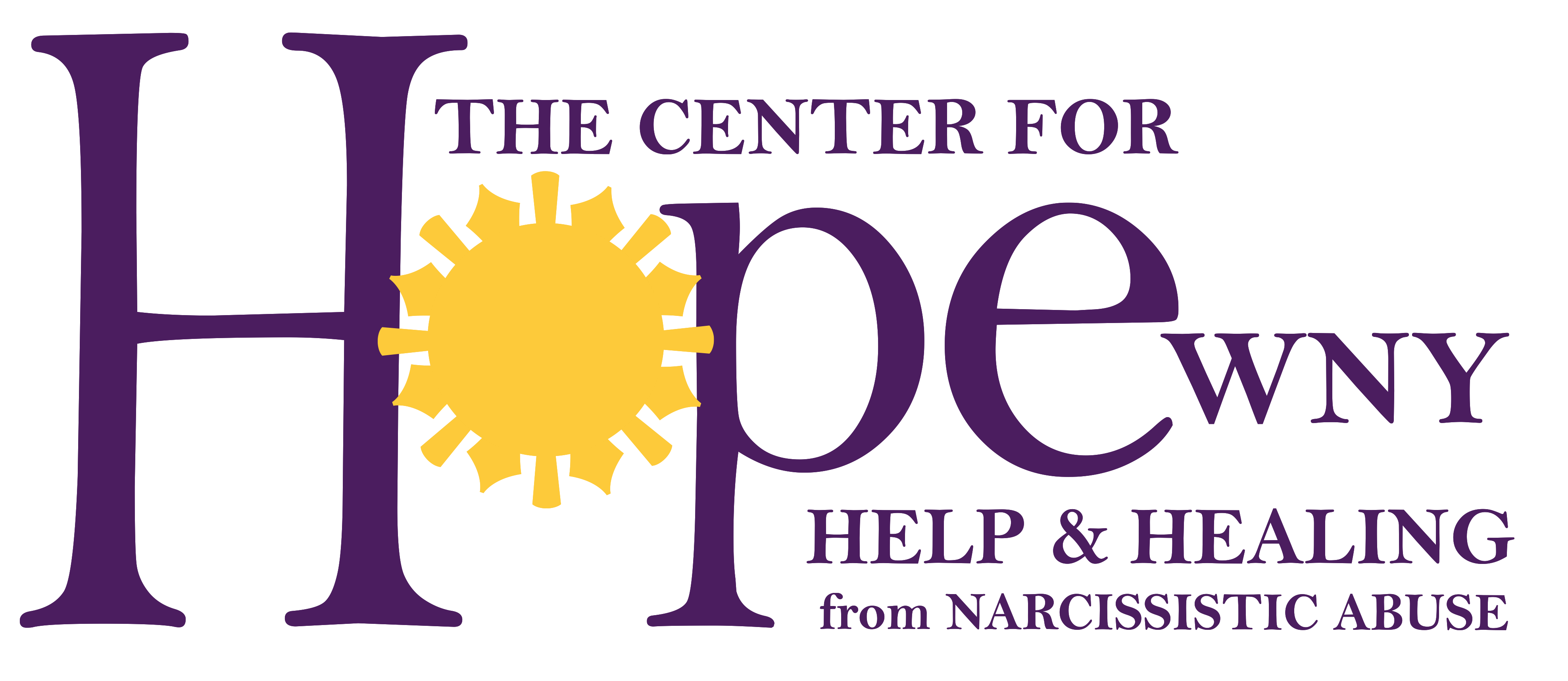- Hope, Help & Healing from Narcissistic Abuse
- 716.955.9658
- info@centerforhopewny.org


*This is the 3rd blog post in the Silent TreatmentSilent Treatment The silent treatment is a form of emotional abuse typically employed by people with narcissistic tendencies. It More series
The Silent TreatmentSilent Treatment The silent treatment is a form of emotional abuse typically employed by people with narcissistic tendencies. It More is a form of emotional abuseEmotional Abuse is an attempt to control, in just the same way that physical abuse is More used by narcissists to hurt, control, and punish their victim. For the victim, there’s no way to resolve their issue or argument when the narcissist cuts off all communication. They’re the target of cruelty and subsequent abandonment. You could’ve received the Silent TreatmentSilent Treatment The silent treatment is a form of emotional abuse typically employed by people with narcissistic tendencies. It More from your boss, your parent, your sibling, a friend, or a romantic love. It could come from anyone.
In my book “Wrecking Ball Relationships: How to Identify, Live with or Leave the Narcissist in Your Life,” I explored ways to cope and what to do when you are on the receiving end of the Silent TreatmentSilent Treatment The silent treatment is a form of emotional abuse typically employed by people with narcissistic tendencies. It More.
Strategies to Cope with a Narcissist Giving the Silent Treatment
Once you recognize or acknowledge you’re suffering from the Silent TreatmentSilent Treatment The silent treatment is a form of emotional abuse typically employed by people with narcissistic tendencies. It More by your narcissist, you have several options in how you respond. Unquestionably, one option is to walk away from the relationship. That may be the right answer for you. Nonetheless, there are other strategies you can employ. They include:
1. Listen Reflectively
Try not to react. The primary goal of the Silent TreatmentSilent Treatment The silent treatment is a form of emotional abuse typically employed by people with narcissistic tendencies. It More is to provoke a reaction from you. Maintain your calm and control. Listening will provide you with information and necessary clues as to the triggers and underlying causes for a narcissist acting out in this way.
2. Don’t try to win – it’s not a competition
There’s no winning with a narcissist. Even when you’re 100 percent right, you’ll never win with a narcissist. Retaliation will only escalate the situation. Yet don’t excuse their behavior. The Silent TreatmentSilent Treatment The silent treatment is a form of emotional abuse typically employed by people with narcissistic tendencies. It More is unacceptable, and you deserve an explanation. Focus on the goal of resolving the issue. Remember, the Silent TreatmentSilent Treatment The silent treatment is a form of emotional abuse typically employed by people with narcissistic tendencies. It More prevents any resolution. This is your opportunity to address the issue. Try to validate the narcissist’s perspective and experience. This is the path to building trust.
3. Protect yourself
Be aware of your feelings and don’t undermine them. You’re smart and capable. You have value. Don’t let a narcissist run over you. It’s important to set boundariesBoundaries are an imaginary line that separates me from you. They separate your physical space, your More and limitations. Surround yourself with people who love and support you. Talk about what’s happening and how the narcissist treats you. Don’t let a narcissist isolate you from your support network. Receiving the Silent TreatmentSilent Treatment The silent treatment is a form of emotional abuse typically employed by people with narcissistic tendencies. It More for long periods of time can lead to depression. Keep healthy, exercise, and meditate.
4. Seek professional help
Remember, the Silent TreatmentSilent Treatment The silent treatment is a form of emotional abuse typically employed by people with narcissistic tendencies. It More is a form of emotional abuseEmotional Abuse is an attempt to control, in just the same way that physical abuse is More. Talking about it will help. Sometimes, the best person to talk to is one you don’t know who has no personal bias. This will help you work through the stress and anxiety caused by the Silent TreatmentSilent Treatment The silent treatment is a form of emotional abuse typically employed by people with narcissistic tendencies. It More. This is for you. A therapist will help you understand what you’ve been through and how to prepare for other challenges.
5. Leave
Yes, I mentioned it above, but it bears repeating. After exhausting all other options, if your situation hasn’t changed, perhaps it’s time to say goodbye. Don’t let the emotional abuseEmotional Abuse is an attempt to control, in just the same way that physical abuse is More affect your mental health. Whether the relationship is a professional one, romantic, with a sibling, or even a parent, address the situation. Set healthy boundariesBoundaries are an imaginary line that separates me from you. They separate your physical space, your More and limits. The Silent TreatmentSilent Treatment The silent treatment is a form of emotional abuse typically employed by people with narcissistic tendencies. It More is one of the cruelest forms of abuse. Develop a plan and set yourself free.
You can find my book “Wrecking Ball Relationships” on Amazon and BarnesandNoble.com.


